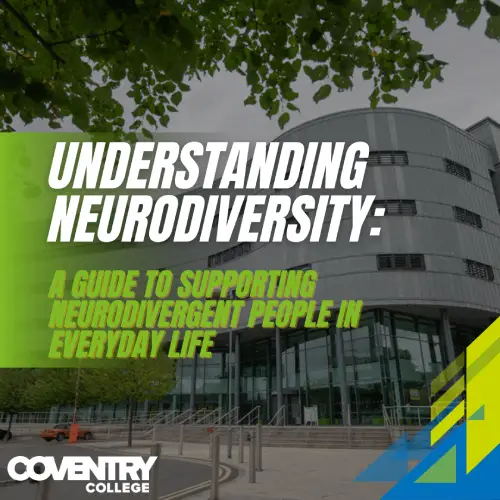
Neurodiversity is a concept that recognises and values the natural variations in how people think, learn, and experience the world. Just as we all have different personalities, skills and preferences, our brains also work in unique ways. Some people are neurodivergent, meaning they have conditions such as autism, ADHD, dyslexia, dyspraxia, or other neurological differences. These differences are not deficits; they are simply variations in how individuals process information, communicate and interact with their surroundings.
If you are neurotypical (meaning your brain functions in ways that are considered the norm by societal standards), you may find it helpful to understand how to better support neurodivergent individuals in your everyday life – whether at work, college, social settings or even within your own family.
Neurodivergent people may communicate in ways that differ from what you’re used to. Some may be more direct, while others might struggle with social cues, eye contact or small talk. Instead of expecting them to adjust to your style, take the time to understand theirs.
Many neurodivergent individuals experience heightened or diminished sensitivity to sensory input, such as lights, sounds, textures or smells.
Social norms and unspoken rules can be challenging for neurodivergent individuals to navigate. Some may struggle with small talk, find group interactions exhausting, or prefer to engage in deeper, more meaningful conversations.
Neurodivergence comes with unique strengths. Many neurodivergent people are highly creative, detail-oriented, analytical or exceptionally skilled in specific areas. Instead of focusing on perceived deficits, recognise and appreciate these strengths.
Small changes can make a big difference in making spaces more inclusive for neurodivergent individuals.
Every neurodivergent person is unique, so the best thing you can do is listen and learn. If someone shares their experiences or asks for accommodations, take them seriously. Avoid making assumptions, and instead, ask how you can support them in a way that feels right for them.
By making small adjustments and embracing neurodiversity, we can create a world where everyone, regardless of how their brain works, feels valued, understood, and able to thrive.


